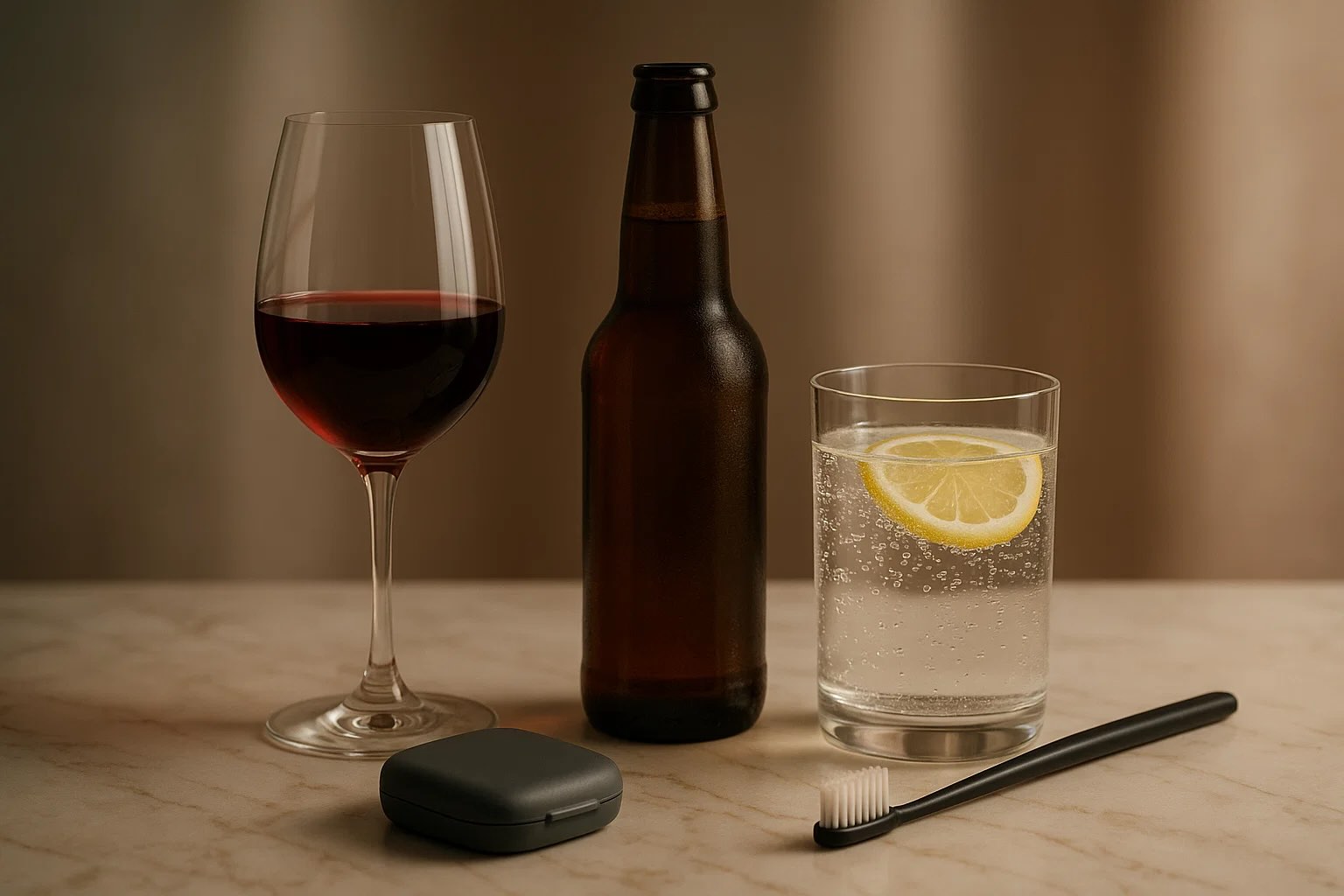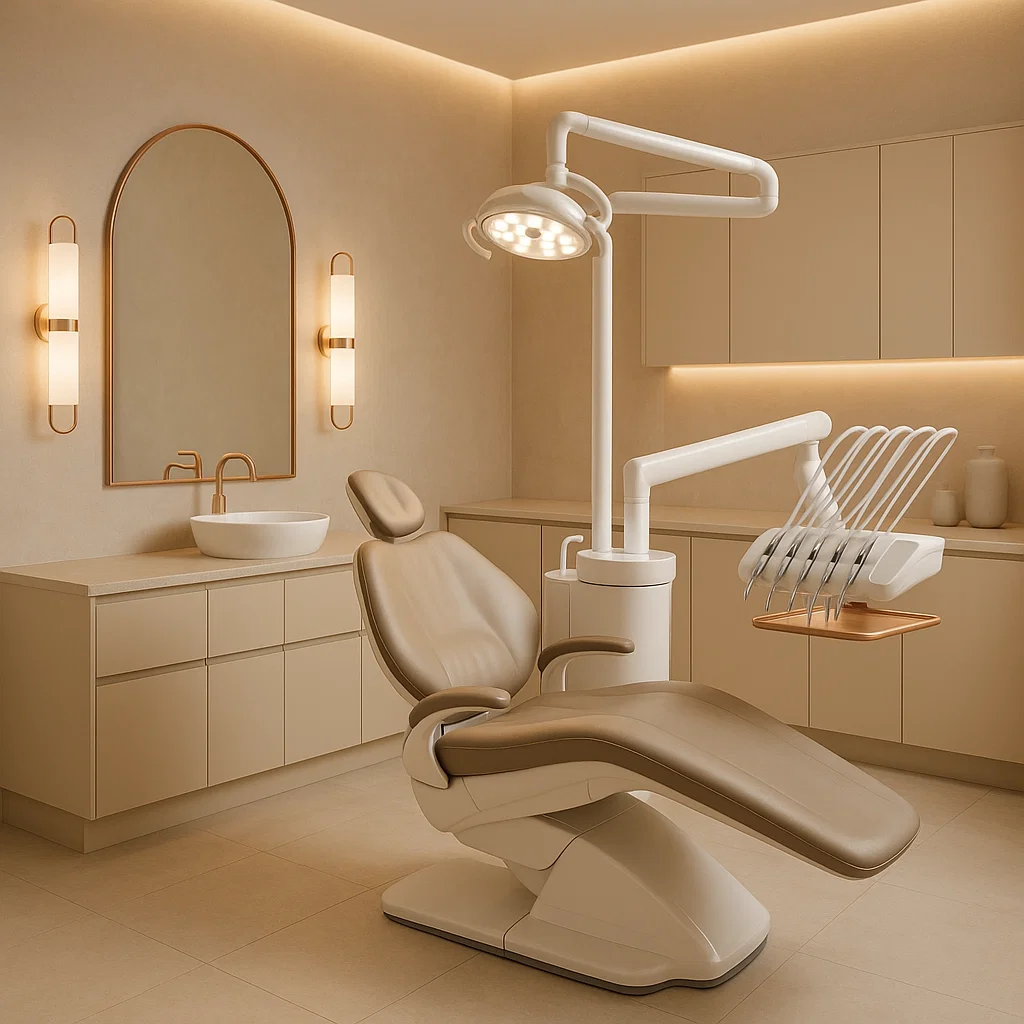
Es viernes por la noche después de una semana larga. Descorchas una botella de vino, sirves un vaso y exhalas. O tal vez sea una cerveza fría con amigos, carcajadas en la mesa. Estos rituales nos ayudan a relajarnos, celebrar y conectarnos.
Pero esto es lo que la mayoría de la gente pasa por alto: incluso una sola copa de vino o cerveza puede interferir silenciosamente con la curación de la boca. Y si te han extraído un diente, te han operado las encías, te han hecho un injerto óseo o te han colocado un implante, el alcohol no solo retrasa la recuperación, sino que también aumenta el riesgo de complicaciones.
El alcohol es un diurético: extrae el agua del sistema. Investigación publicada en el Revista de la Asociación Dental Estadounidense muestra que también reduce el flujo de saliva, dejando la boca seca.
¿Por qué importa eso? La saliva es más que un consuelo:
Sin él, las encías y los sitios quirúrgicos permanecen vulnerables y la cicatrización se ralentiza.
Después de un procedimiento con puntos de sutura, como una extracción, un injerto o un implante, no se recomienda cepillarse cerca del sitio durante unos días.
Introduzca el alcohol. El vino y la cerveza contienen azúcares y carbohidratos que se descomponen en placa. Normalmente, el cepillado diario interrumpiría esta acumulación, pero cerca de las suturas, la placa tiene más libertad para acumularse.
📊 Un estudio publicado en el Journal of Periodontology descubrió que la acumulación de placa alrededor de las suturas aumentaba la irritación, retrasaba la cicatrización y aumentaba el riesgo de infección.
En pocas palabras: el alcohol alimenta a las bacterias en el momento exacto en que las encías son más vulnerables.
Incluso los vinos «secos» contienen azúcares naturales, mientras que los carbohidratos de la cerveza se convierten en azúcar. Combínalo con la acidez del alcohol y obtendrás:
No se trata de una bebida, sino de cómo el alcohol agrava el estrés en los tejidos en proceso de cicatrización.
El efecto menos visible del alcohol puede ser el más grave: debilita el sistema inmunitario.
Según el Institutos Nacionales de Salud, alcohol:
Esto es especialmente riesgoso para:
Incluso beber con moderación en esta ventana puede duplicar el tiempo de curación y aumentar las complicaciones.
Alterna cada copa de vino o cerveza con agua sin gas o con gas. Restaura el flujo de saliva, reduce el contacto con el ácido y mantiene los tejidos equilibrados. Piense en ello como un limpiador de paladar con un propósito.
Desde cócteles sin alcohol artesanales hasta tónicos botánicos, las bebidas sin alcohol actuales son elegantes e indulgentes, sin deshidratación ni picos de azúcar. Perfectos para entornos sociales en los que aún quieres algo refinado en tus manos.
La curación requiere tiempo. Evite el consumo de alcohol en los días previos al procedimiento y manténgase libre de alcohol durante todo el período de cicatrización.
Siga siempre las instrucciones personalizadas de su dentista.
¿Puedo beber alcohol después de una extracción dental?
No. La ADA y las pautas de cirugía oral recomiendan evitar el consumo de alcohol durante al menos 72 horas (idealmente una semana) para estabilizar el coágulo y permitir que las suturas sanen.
¿Por qué es peligroso consumir alcohol después de una cirugía o un injerto de encías?
Porque reduce la saliva, alimenta la placa y suprime la respuesta inmunitaria, todo lo cual retrasa la reparación de los tejidos.
¿Durante cuánto tiempo debo evitar el consumo de alcohol después de los implantes?
La mayoría de los dentistas recomiendan de 7 a 10 días, pero es posible que se necesite más tiempo según la curación. Siga siempre las instrucciones de su proveedor.
¿Un trago realmente marca la diferencia?
Sí Incluso pequeñas cantidades durante el período de cicatrización pueden aumentar el riesgo de infección y retrasar la recuperación.
En KYT Dental Services, creemos que la atención de primera calidad no se basa en la restricción, sino en el refinamiento. Del mismo modo que seleccionarías el cuidado de la piel o la nutrición, tu enfoque de la curación merece una intención.
Es por eso que nuestra atención va más allá del procedimiento en sí: conectamos la hidratación, la nutrición y el estilo de vida con la odontología para anticipar las complicaciones antes de que comiencen. Ya sea para guiarlo durante la recuperación posoperatoria, fortalecer el esmalte o garantizar que sus implantes se integren sin problemas, nuestro enfoque es anticipatorio, protector y duradero.
✨ Porque si bien una bebida puede durar toda la noche, su sonrisa lo acompañará de por vida. Protegerla es el verdadero lujo.





